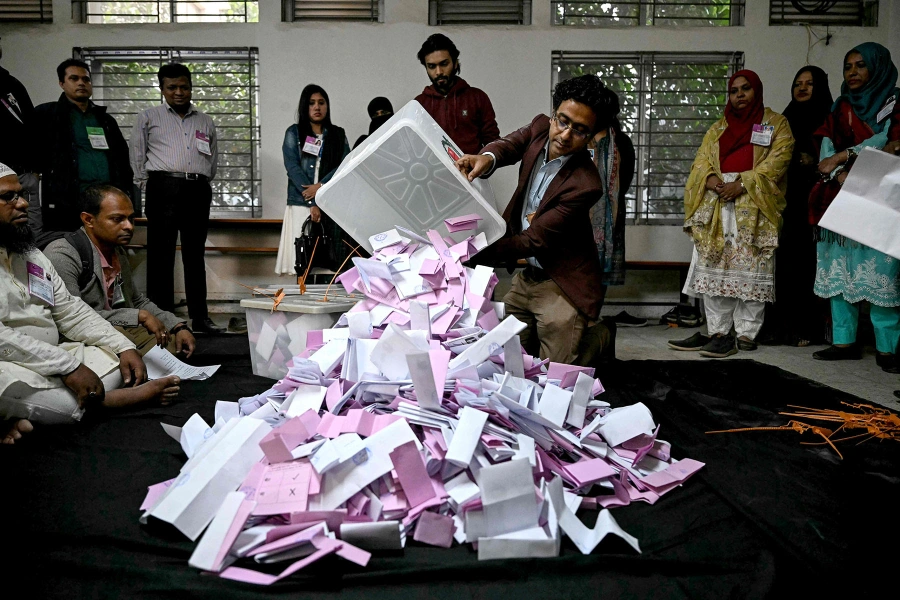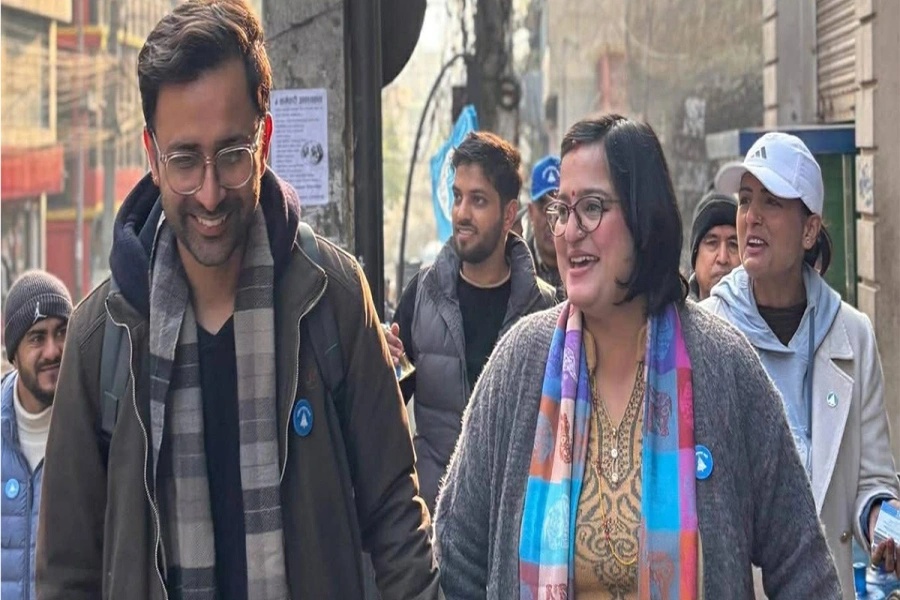Photo Courtesy: Viplob Pratik's Facebook
Viplob Pratik is a prolific name when it comes to poems, lyrics, and translation in contemporary Nepali literary fraternity. Born and raised in Kathmandu, Pratik has penned over a hundred poems in Nepali and English including two poem collections: 'The person kissed by moon' and 'Nahareko Manchhe'.
Similarly, he has written more than 400 songs. ‘Haar Raat Sapani Maa’ by Deep Shrestha and ‘Timro Lagi’ by Abhaya & the Steam Injun are his most acclaimed works.
In 2017, he also published his debut novel ‘Abijit’. Moreover, he has translated several writing pieces such as Durgalal Shrestha's 'The Unbridled Passion' into English and 'The Law' by Frédéric Bastiat into Nepali.
After involving himself in literature for the past five decades, now litterateur Pratik is seen as an actor in Anup Baral’s directorial play ‘Mahabhoj’. And he is the translator of the Indian drama into Nepali which was originally written by Indian author Mannu Bhandari in 1982 AD.
My City’s Kiran Lama caught up with Pratik at Mandala Theatre, Anamnagar to talk about the inspiration and experiences throughout his writing journey.
What inspired you to choose writing as a career?
It is not about the motivation that dragged me into the writing field. Initially, my father wanted me to write some poetry. Later, I unconsciously have driven into writing stuff and later I felt that writing is a medium to express my feeling.
Teaching through poetry

How do you create a poem? Is it by your heart or write what readers want?
I think I create poetry when my heart wants it. When my heart read the problem such as corruption, discrimination, and inequality existing in contemporary society, it wants to turn them in an art form. Then, I start to create a poem spontaneously. The day when I started to write by focusing on the feelings of the audience, I will stop writing.
What is poetry for you?
For me, poetry is a creative art that detoxifies the mental toxin such as ego, anger and the greed inside me.
If you didn’t write, what would you do for work?
If I didn’t write, I would be a good human.
What advice do you have for young writers?
Writing is not an instant thing which is about practicing. So, I always say to an aspiring writer that more you practice, more you master. There is a quote that if you want to be master in something, you need 10,000 hours to spend in it. Hence, to be a decent writer, you have to read a lot of books, especially the classic one. Moreover, you have to travel because traveling will get your ideas for writing.
How do you see Nepali literature today?
I think Nepali literature is booming commercially today in comparison to 100 years back. The author with a good book is earning handsome money.
You are a poet, lyricist, novelist, and translator too. And among them which is your comfort zone?
In each of the field, you’ve to sweat a lot. It doesn’t come like winning a lottery. I’ve to put the same effort whether I write a six-line poem or a long article.
What is your plan in the future?
Be it writing or filmmaking, I have never expected anything in my whole life or in my career. As I never plan or expect anything, everything comes as a miracle for me. Whatever comes in my life, I’ll happily accept it.






































